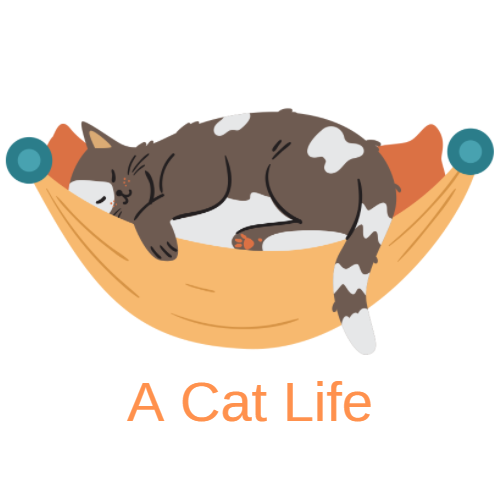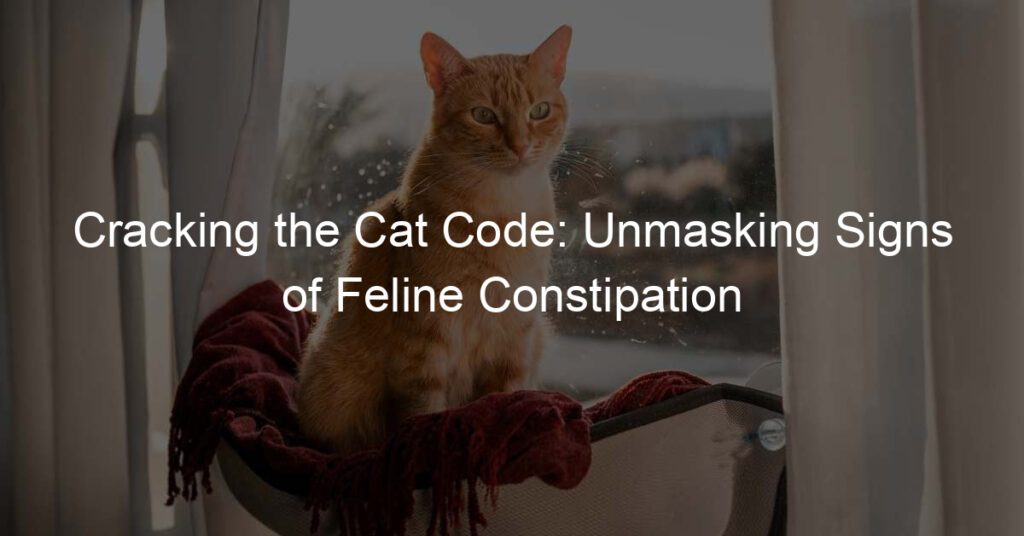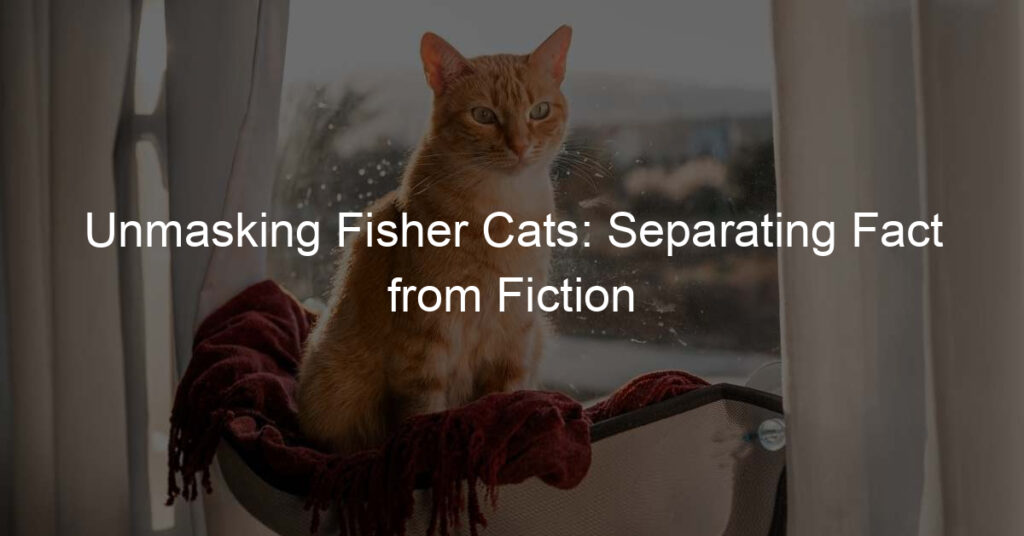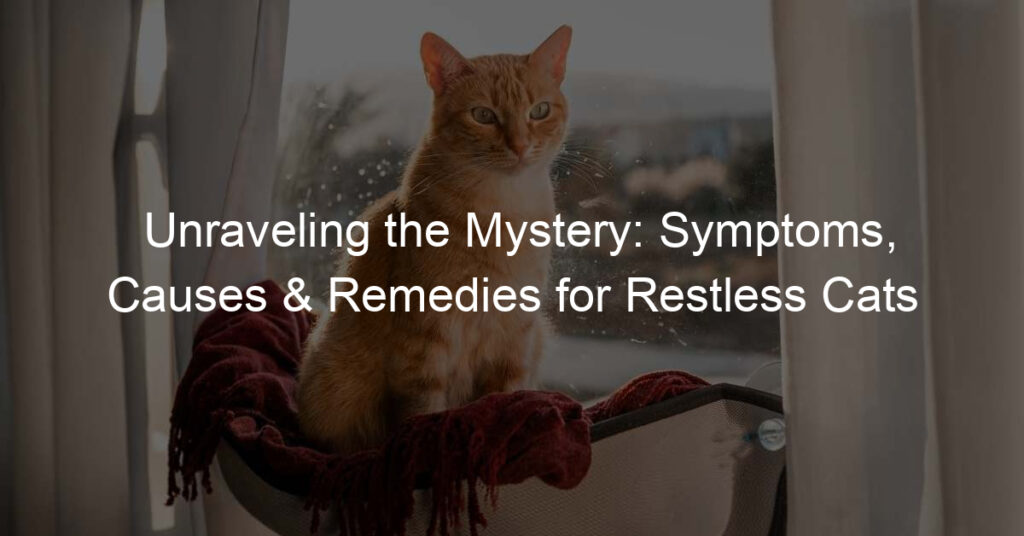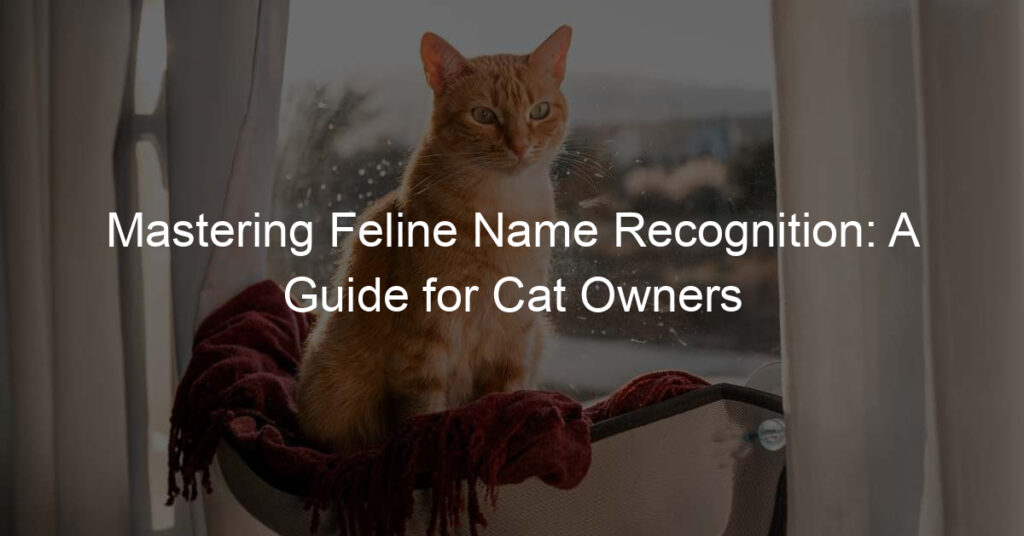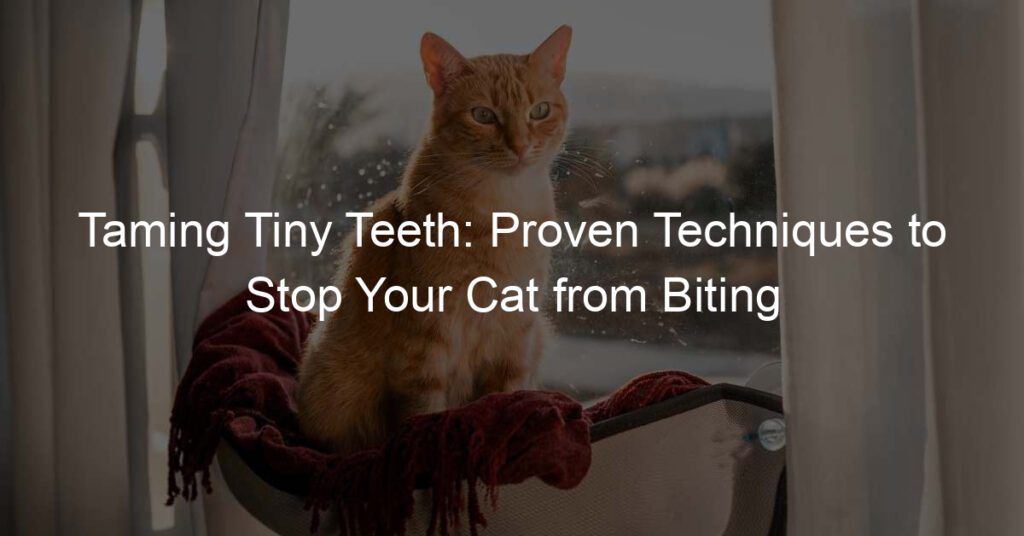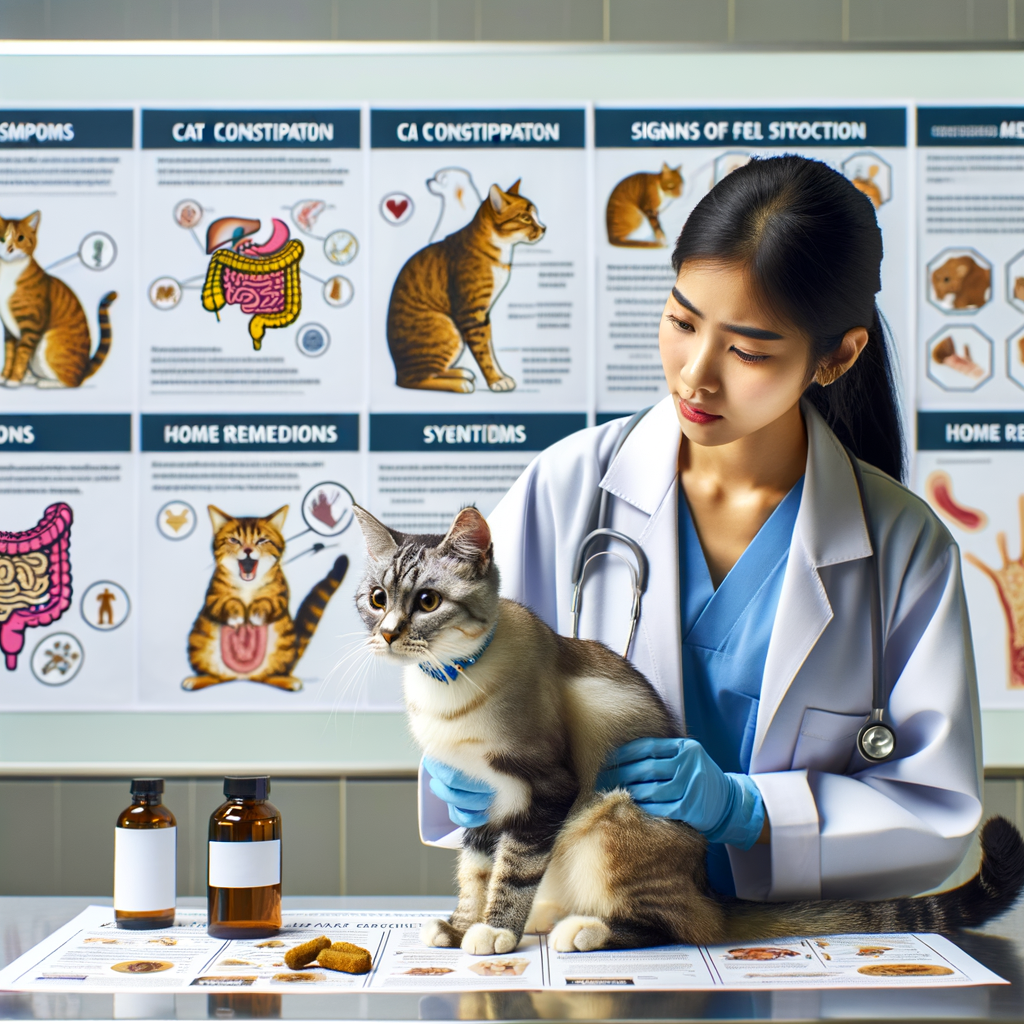
Introduction to Feline Constipation
When it comes to our feline friends, their health is of utmost importance. One common health issue that cats face is constipation. In this post, we will delve into the topic of feline constipation, helping you understand its significance and common causes.
- Understanding the Importance of Digestive Health in Cats
- Common Causes of Constipation in Cats
- Dehydration: Cats that don’t drink enough water can become dehydrated, leading to hard, dry stools that are difficult to pass.
- Poor diet: A diet lacking in fiber can lead to constipation. Fiber helps add bulk to the stool, making it easier for your cat to pass.
- Lack of exercise: Regular physical activity helps stimulate the intestines, promoting regular bowel movements. Cats that are sedentary are more prone to constipation.
- Old age: Older cats are more likely to suffer from constipation due to a slower metabolism and decreased physical activity.
Just like in humans, a cat’s digestive health is crucial for its overall well-being. The digestive system is responsible for breaking down food, absorbing nutrients, and eliminating waste. When any part of this system is not functioning properly, it can lead to discomfort and health issues, such as constipation.
Constipation in cats can lead to various problems, including loss of appetite, lethargy, and even serious complications if left untreated. Therefore, maintaining good digestive health is key to preventing constipation and ensuring your cat’s overall health.
Constipation in cats can be caused by various factors. Here are some of the most common:
Understanding these causes can help you take steps to prevent constipation in your cat and ensure their digestive health.
In the following sections, we will delve deeper into the symptoms, signs, and treatments for feline constipation. Stay tuned to learn more about this common health issue and how you can help your cat stay healthy.
Feline Constipation Symptoms
It’s essential to understand the symptoms of feline constipation to ensure your cat’s health and comfort. The two primary symptoms to look out for are changes in bowel movements and signs of discomfort or pain. Let’s delve into these symptoms in more detail.
- Identifying changes in bowel movements
Changes in your cat’s bowel movements are the most noticeable sign of constipation. If your cat usually uses the litter box daily but suddenly starts going less frequently, it could be a sign of constipation. You might also notice that the feces are dry, hard, and smaller than usual. This is because the longer the stool stays in the colon, the more water is absorbed, making the stool hard and difficult to pass.
- Recognizing signs of discomfort or pain
Cats are known for their ability to hide discomfort and pain, but there are still signs you can look for. If your cat is constipated, it may show signs of straining when trying to defecate. You might also notice your cat frequently visiting the litter box without producing any stool. Other signs of discomfort can include loss of appetite, lethargy, and a hunched back. If your cat shows any of these signs, it’s crucial to seek veterinary attention immediately.
Understanding these symptoms can help you catch constipation early and get your cat the help it needs. Remember, if you’re unsure, it’s always best to consult with a professional.
Cat Constipation Signs
Just like humans, cats can also experience constipation. It can be a serious issue if not addressed promptly. Recognizing the signs of cat constipation early can help you take the necessary steps to ensure your feline friend’s health and comfort. Here are some of the most common signs of constipation in cats:
- Changes in Behavior and Eating Habits
- Physical Signs such as Bloating or Discomfort
One of the first signs you might notice is a change in your cat’s behavior. Cats suffering from constipation might become less active or show less interest in their favorite activities. They might also start avoiding their litter box due to the discomfort associated with constipation. In terms of eating habits, a constipated cat might eat less than usual or show no interest in food at all. This is because constipation can cause a feeling of fullness, which can reduce your cat’s appetite.
Physical signs are another clear indication of constipation in cats. A constipated cat might show signs of bloating, especially around the abdominal area. This is due to the buildup of feces in the colon. Additionally, your cat might show signs of discomfort or pain, such as meowing or crying out when trying to use the litter box. They might also adopt unusual postures or show signs of straining when trying to defecate. If you notice any of these signs, it’s important to consult with a vet as soon as possible.
Remember, every cat is unique and might show different signs of constipation. The key is to know your cat’s normal behavior and habits, so you can quickly spot any changes. If you’re unsure, it’s always best to consult with a professional. Early detection and treatment can help ensure your cat’s health and comfort.
How to Tell if Your Cat is Constipated
Constipation in cats can be a serious issue. It’s important to know the signs so you can help your feline friend get the care they need. Here are three key steps to help you determine if your cat is constipated.
- Observing Changes in Litter Box Habits
- Monitoring Your Cat’s Overall Behavior
- Consulting with a Veterinarian
One of the first signs of constipation in cats is a change in their litter box habits. If your cat is visiting the litter box more frequently than usual, but producing fewer or smaller stools, this could be a sign of constipation. Also, if the stools are hard and dry, it’s a clear indication that your cat might be constipated.
Changes in your cat’s behavior can also indicate constipation. If your cat seems less active, is straining or crying out in pain while trying to defecate, or has a loss of appetite, these could all be signs of constipation. Additionally, if your cat is excessively grooming their rear end, it may be due to discomfort from constipation.
If you’ve noticed changes in your cat’s litter box habits and behavior, it’s important to consult with a veterinarian. They can perform a physical examination and possibly run tests to confirm if your cat is constipated. Remember, early detection and treatment can prevent more serious health problems.
In conclusion, observing your cat’s litter box habits and overall behavior, as well as consulting with a veterinarian, are crucial steps in determining if your cat is constipated. By staying vigilant and proactive, you can ensure your feline friend’s digestive health is in good shape.
Cat Constipation Behavior
Understanding your cat’s behavior is essential in identifying any health issues, including constipation. Constipation can cause significant discomfort and distress in your cat, leading to noticeable changes in their behavior. Here are some of the behavioral changes you might observe:
Behavioral Changes
- Decreased Activity Levels: Cats suffering from constipation often show a decrease in their usual activity levels. They may seem less enthusiastic about playtime or may spend more time sleeping. This is because constipation can make them feel uncomfortable and lethargic. It’s important to monitor your cat’s activity levels and consult a vet if you notice any significant changes.
- Increased Aggression or Irritability: Another sign of constipation in cats can be an increase in aggression or irritability. If your usually friendly and calm cat suddenly becomes irritable or aggressive, it may be a sign that they are in discomfort. Constipation can cause abdominal pain, which can lead to changes in your cat’s behavior. If your cat is showing signs of aggression or irritability, it’s crucial to seek veterinary advice.
Remember, these behavioral changes could be signs of other health issues as well. Therefore, it’s essential to consult a vet if you notice any changes in your cat’s behavior. Early detection and treatment can help ensure your cat’s health and well-being.
Physical Changes
When a cat is constipated, there are some physical changes that you might notice. These changes are usually related to their posture or movement, and visible signs of straining or discomfort. Let’s take a closer look at these signs.
- Changes in Posture or Movement
- Visible Straining or Discomfort
One of the first things you might notice is a change in your cat’s posture or movement. A constipated cat might walk differently, often with a hunched back or stiff legs. This is because the discomfort in their abdomen can make it difficult for them to move around as they usually do. They might also spend more time lying down or seem less interested in playing or jumping.
Another clear sign of constipation in cats is visible straining or discomfort. If your cat is constipated, they might spend a lot of time in the litter box, trying to pass stool. You might also notice them straining or crying out in pain. This can be distressing to watch, but it’s important to remember that this is a sign that your cat needs help. If you notice these signs, it’s important to consult with a vet as soon as possible.
In conclusion, observing your cat’s physical changes can provide important clues about their health. If you notice any changes in their posture, movement, or visible signs of straining or discomfort, it’s important to seek veterinary care. Remember, early detection and treatment can make a big difference in your cat’s health and comfort.
Feline Constipation Treatment
When it comes to treating constipation in cats, there are several effective methods you can try at home before seeking medical attention. Here, we will discuss two of the most common home remedies for feline constipation: dietary changes and increased hydration.
Home Remedies
Home remedies can be a great first step in treating your cat’s constipation. They are simple, safe, and can often be very effective. Here are two of the most common home remedies:
- Dietary changes
- Increased hydration
One of the most effective ways to treat constipation in cats is by changing their diet. A diet high in fiber can help soften your cat’s stool and make it easier for them to pass. You can increase your cat’s fiber intake by adding a small amount of canned pumpkin or a specially formulated fiber supplement to their food. Remember, it’s always best to consult with your vet before making any major changes to your cat’s diet.
Dehydration can often lead to constipation in cats. By increasing your cat’s water intake, you can help soften their stool and make it easier for them to pass. You can encourage your cat to drink more water by providing them with a fresh and clean water source at all times. Some cats may also be enticed to drink more if their water is flowing, so consider investing in a cat water fountain.
While these home remedies can be effective, it’s important to remember that they may not work for all cats. If your cat’s constipation persists or worsens, it’s important to seek medical attention as soon as possible.
Medical Treatments
When home remedies are not enough to ease your cat’s constipation, it may be time to consider medical treatments. These treatments are typically administered by a veterinarian and can include medication and, in severe cases, surgical intervention.
- Medication options
- Potential for surgical intervention
There are several types of medication that can help treat feline constipation. These include laxatives, stool softeners, and motility drugs. Laxatives help stimulate the bowel to pass stool, while stool softeners make the stool easier to pass. Motility drugs help the muscles in the intestines move the stool along.
It’s important to remember that medication should always be administered under the guidance of a veterinarian. They can provide the correct dosage and monitor your cat’s response to the medication. Never try to medicate your cat on your own without consulting a professional first.
In severe cases of feline constipation, where medication is not effective, surgical intervention may be necessary. This is usually a last resort and is only considered when all other options have been exhausted.
The type of surgery will depend on the cause of the constipation. For example, if a blockage is causing the constipation, the vet may need to remove it surgically. In other cases, a procedure called a colectomy may be performed, where part or all of the colon is removed.
While surgery can sound scary, it’s important to remember that it’s performed by skilled veterinarians and can greatly improve your cat’s quality of life. If your vet recommends surgery, they will discuss the procedure, risks, and recovery process with you in detail.
Signs of Cat Constipation
Identifying the signs of cat constipation early can help you take the necessary steps to ensure your feline friend’s health. Here are some key signs to watch for and when to seek veterinary care.
- Key Signs to Watch For
There are several signs that your cat may be constipated. These include:
- Infrequent or no bowel movements: If your cat usually uses the litter box daily but has not done so for two days or more, it may be constipated.
- Hard, dry stools: If your cat’s stools are hard and dry, this could be a sign of constipation. Healthy cat stools should be firm but not hard, and moist but not watery.
- Straining in the litter box: If your cat is spending a lot of time in the litter box and straining to defecate, it may be constipated.
- Loss of appetite: Cats with constipation may lose their appetite or eat less than usual.
- Weight loss: If your cat is losing weight and showing other signs of constipation, it may be suffering from a serious digestive issue.
- When to Seek Veterinary Care
If you notice any of the above signs of constipation in your cat, it’s important to seek veterinary care as soon as possible. Constipation can be a symptom of a more serious health issue, such as a blockage in the digestive tract or a neurological problem. Your vet can diagnose the cause of your cat’s constipation and recommend the appropriate treatment.
Remember, it’s always better to be safe than sorry when it comes to your pet’s health. If you’re unsure whether your cat is constipated, it’s best to consult with a vet.
Cat Bowel Blockage Symptoms
When it comes to our feline friends, it’s crucial to understand the signs of potential health issues. One such problem is a bowel blockage, which can be quite severe if not addressed promptly. In this section, we will delve into the severity of bowel blockages and how to recognize the signs of a potential blockage in your cat.
- Understanding the Severity of Bowel Blockages
A bowel blockage, also known as an intestinal obstruction, is a serious condition that can occur in cats. It happens when something blocks the passage of food and fluids through the intestines. This blockage can cause severe discomfort and can even be life-threatening if not treated promptly.
According to veterinary studies, bowel blockages account for about 3% of all feline emergency hospital admissions. This statistic underscores the importance of understanding and recognizing the symptoms of this condition.
- Recognizing the Signs of a Potential Blockage
Early detection of a bowel blockage can significantly improve your cat’s prognosis. Here are some signs to watch out for:
| Signs | Description |
|---|---|
| Vomiting | If your cat is vomiting frequently, it could be a sign of a blockage. The body is trying to expel the obstruction. |
| Loss of Appetite | A cat with a blockage may lose interest in food because eating can cause discomfort. |
| Abdominal Pain | Touching your cat’s belly may cause them to react in pain. This could be a sign of a blockage. |
| Lethargy | If your cat is less active than usual, it could be because they are not feeling well due to a blockage. |
If you notice any of these symptoms, it’s essential to seek veterinary care immediately. Early intervention can make a significant difference in your cat’s health and well-being.
Feline Digestive Issues
Cats, like humans, can experience a variety of digestive issues. These problems can be uncomfortable for your feline friend and may lead to more serious health concerns such as constipation. Let’s take a closer look at some of the common digestive problems in cats and how they can lead to constipation.
- Common Digestive Problems in Cats
- Inflammatory Bowel Disease (IBD): This is a condition where the cat’s digestive tract becomes inflamed. It can cause discomfort, vomiting, and changes in appetite.
- Gastroenteritis: This is inflammation of the stomach and intestines, often caused by infection. Symptoms can include vomiting, diarrhea, and loss of appetite.
- Food Allergies: Cats can be allergic to certain ingredients in their food. This can cause a range of symptoms, including vomiting, diarrhea, and skin problems.
- Hairballs: Cats groom themselves by licking their fur, which can lead to the ingestion of hair. This hair can form balls in the stomach, causing discomfort and sometimes vomiting.
- How These Issues Can Lead to Constipation
- Inflammatory Bowel Disease: The inflammation can cause the intestines to work less efficiently, leading to constipation.
- Gastroenteritis: Dehydration from vomiting and diarrhea can cause the body to absorb more water from the intestines, making the stool harder and more difficult to pass.
- Food Allergies: Allergies can cause inflammation in the intestines, which can lead to constipation.
- Hairballs: If a hairball becomes large enough, it can block the intestines, leading to constipation.
There are several digestive issues that cats can experience. These include:
Any of these digestive problems can potentially lead to constipation in cats. Here’s how:
Understanding these common digestive issues and how they can lead to constipation is the first step in ensuring your cat’s digestive health. If you notice any changes in your cat’s eating habits, bowel movements, or overall behavior, it’s important to consult with a veterinarian.
Cat Constipation Remedies
When your feline friend is struggling with constipation, it can be a distressing experience for both of you. However, there are various remedies available to help ease your cat’s discomfort. These remedies can be divided into two main categories: natural remedies and over-the-counter options.
- Natural remedies for constipation
- Hydration: Ensuring your cat is well-hydrated is crucial. Water helps soften the stool and promotes regular bowel movements. Encourage your cat to drink more water by providing fresh water at all times. You can also add wet food to their diet to increase their water intake.
- Fiber-rich diet: A diet high in fiber can help stimulate bowel movements. Foods like pumpkin, wheat bran, and certain types of cat food can provide the necessary fiber. Always consult with your vet before changing your cat’s diet.
- Regular exercise: Regular physical activity can help stimulate your cat’s digestive system and encourage regular bowel movements. Simple activities like playing with toys or laser pointers can help keep your cat active.
- Over-the-counter options
- Laxatives: Certain laxatives are safe for cats and can help soften the stool. However, they should be used sparingly and only under the guidance of a vet.
- Stool softeners: These can help make bowel movements easier for your cat. Again, these should only be used under the supervision of a vet.
- Fiber supplements: If your cat’s diet lacks fiber, a vet may recommend a fiber supplement. These supplements can help promote regular bowel movements.
There are several natural remedies that can help alleviate constipation in cats. These remedies are generally safe and can be easily incorporated into your cat’s daily routine.
Over-the-counter remedies are another effective way to treat cat constipation. These options should be used under the guidance of a vet to ensure they’re safe for your cat.
Remember, it’s essential to consult with your vet before trying any new remedies. They can provide the best advice based on your cat’s specific needs and health condition.
Cat Health Issues: Constipation
Constipation in cats is a common health issue that can have serious implications if not addressed promptly. It’s crucial to understand the impact of constipation on your cat’s overall health and to learn about long-term management strategies for constipated cats.
- Understanding the Impact of Constipation on Overall Health
Constipation is more than just a discomfort for your cat. It can lead to significant health problems. When a cat is constipated, it means that their stool is hard, dry, and difficult to pass. This can cause a lot of strain on their digestive system and can lead to other health problems like bloating, abdominal pain, loss of appetite, and in severe cases, even a blockage in the intestines.
Moreover, constipation can be a symptom of underlying health issues such as kidney disease, dehydration, or a diet lacking in fiber. Therefore, it’s important to take constipation seriously and seek veterinary help if your cat is showing signs of constipation.
- Long-term Management Strategies for Constipated Cats
Managing constipation in cats is a two-pronged approach. It involves treating the immediate problem and implementing strategies to prevent future occurrences. Here are some strategies:
- Dietary Changes: Increasing the fiber content in your cat’s diet can help soften the stool and make it easier to pass. This can be achieved by adding canned pumpkin or a fiber supplement to their food.
- Hydration: Ensuring your cat is well-hydrated is crucial. Dehydration can lead to constipation. Encourage your cat to drink more water by providing fresh water at all times, or consider switching to wet food which has a higher water content.
- Regular Exercise: Regular physical activity can help stimulate bowel movements. Encourage your cat to play and move around regularly.
- Veterinary Care: Regular vet check-ups can help catch any potential issues early. If your cat is prone to constipation, your vet may recommend a special diet or medication to help manage the condition.
Remember, each cat is unique and what works for one may not work for another. It’s important to work closely with your vet to find the best management strategy for your cat’s constipation.
Conclusion: Ensuring Your Cat’s Digestive Health
As we conclude this comprehensive guide on feline constipation, it’s important to remember that your cat’s digestive health is a crucial part of their overall well-being. There are two key aspects to consider:
- The importance of regular veterinary check-ups
- Creating a healthy environment for your cat
The Importance of Regular Veterinary Check-ups
Regular veterinary check-ups are vital in maintaining your cat’s digestive health. These check-ups allow your vet to detect any potential issues early, before they become serious problems. For instance, constipation, if left untreated, can lead to more severe conditions like bowel blockage. Therefore, it’s recommended to schedule at least one veterinary visit per year for a general health check-up, and more frequently if your cat is experiencing any symptoms of constipation.
Creating a Healthy Environment for Your Cat
Creating a healthy environment for your cat is another crucial step in ensuring their digestive health. This includes providing a balanced diet, ensuring they have access to fresh water at all times, and encouraging regular exercise. A balanced diet helps to prevent constipation, while regular exercise aids in maintaining a healthy digestive system. Additionally, a stress-free environment can also contribute to your cat’s overall health, as stress can be a trigger for constipation in some cats.
In conclusion, your cat’s digestive health is an essential aspect of their overall well-being. By ensuring regular veterinary check-ups and creating a healthy environment, you can help prevent constipation and other digestive issues in your feline friend. Remember, a healthy cat is a happy cat!
